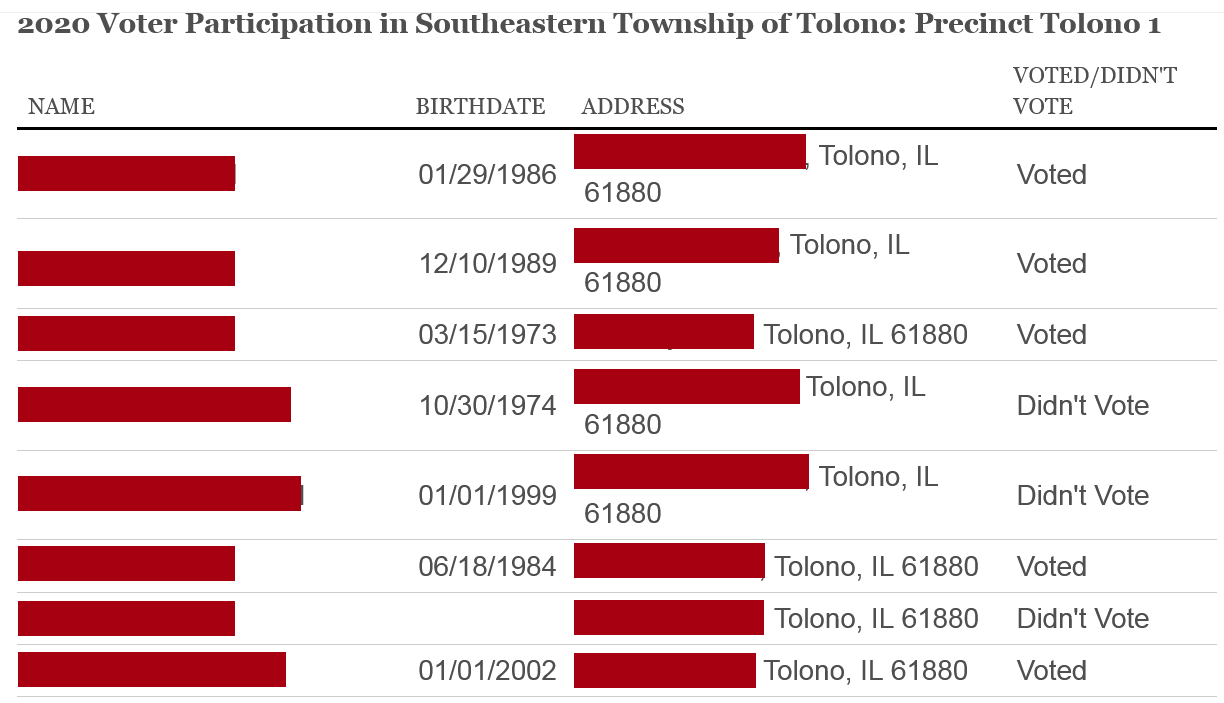by Claire Wofford
Associate Professor of Political Science, College of Charleston
In a 57-page opinion issued on Feb. 6, 2024, a federal appeals court ruled against former President Donald Trump, deciding that
presidents are not immune from criminal prosecution for actions they took while in office.
The decision allows the federal prosecution of Trump for attempting to undermine the 2020 election to continue.
A three-judge panel of the U.S. Court of Appeals for the District of Columbia Circuit –
two appointed by Democratic presidents and one by a Republican –
affirmed the Dec. 1, 2023, ruling of District Court Judge Tonya Chutkan, in which she said that a former president does not enjoy complete immunity from criminal prosecution for actions taken while in office.
The Hill reported that Trump spokesman Steven Cheung responded to the appeals court ruling by saying, “President Trump respectfully disagrees with the DC Circuit’s decision and will appeal it in order to safeguard the Presidency and the Constitution.” The decision, Cheung said, “threatens the bedrock of our Republic.”
The appeals court panel rejected Trump’s argument that the structure of U.S. government and the demands of the presidency necessitated immunity, instead stating that his claims of “unbounded authority to commit crimes” would “collapse our system of separated powers.” In their words, “President Trump has become citizen Trump,” and therefore had only the defenses available to any criminal defendant, not a special immunity privilege unavailable to anyone else.
As a scholar of
judicial behavior and American politics, I have been closely watching this case. The court’s decision, particularly if the Supreme Court allows it to stand, is likely to have ramifications across the U.S. legal and political systems for decades.
‘Divine right of kings’
Trump is the subject of multiple civil and criminal cases
in both state and federal courts. He is currently appealing several of them, including one relating to his appearance on the Colorado ballot, which the
Supreme Court has already agreed to hear.
In mid-December 2023, the federal government asked the Supreme Court to weigh in on the immunity dispute as well, but the court declined to do so, at least until the appeal was heard by the
U.S. Court of Appeals for the District of Columbia Circuit
This particular case involves the prosecution of Trump by special counsel Jack Smith. On Aug. 1, 2023,
Smith indicted Trump on four counts of violating federal law for his conduct relating to the 2020 election, including conspiracy to defraud the United States, conspiracy to obstruct an official proceeding, obstruction of and attempt to obstruct an official proceeding and conspiracy against rights. The proceeding in the appeals court was not about whether Trump committed these crimes but whether he could be prosecuted for them at all.
Trump’s argument centered on a claim of presidential immunity – the notion that a president cannot be subjected to legal action for official conduct or actions taken as part of the job. While there is no explicit language in the U.S. Constitution about such immunity, the Supreme Court had previously ruled in
Nixon v. Fitzgerald that presidents can be protected from civil lawsuits for their “official acts.”
The Nixon decision did not control the outcome here, however, because that case involved a civil lawsuit rather than a criminal prosecution. As highlighted during the oral argument in Trump’s appeal, that distinction – of whether it’s a civil or criminal case – makes a world of difference.
Protecting the president from the hassles of civil litigation is one thing; permitting the president, charged in Article 2 of the Constitution
with faithful execution of the laws, to be able to break those same laws with impunity is quite another.
That sort of upside-down world is precisely what led District Court Judge Chutkan to issue her sweeping ruling on Dec. 1, 2023, that presidents are not immune from prosecution for crimes committed while in office. As she put it, Trump did not have the “
divine right of kings to evade criminal accountability.” The court today agreed with that sentiment.
High stakes
The oral argument before the appeals court on Jan. 9, 2024,
was similarly dramatic.
The three judges spent over an hour rigorously questioning both sides, and the language was often sweeping.
Trump’s lawyer spoke of a president’s need to take “bold and fearless” executive action, to not have to constantly “look over their shoulder” for fear of prosecution and of the “republic shattering” consequences of ruling against the former president. Judge Florence Y. Pan raised striking hypotheticals about presidents assassinating political opponents or selling national security secrets to foreign governments. The lawyer for the federal government noted the “frightening future” if presidents were free to violate the law while in office.
The court’s opinion addressed Trump’s argument that future presidents would be unable to take decisive action for fear of prosecution. The judges ruled that the risk of “chilling … Presidential action appears to be low” and was outweighed by the public’s interest in accountability.
The appeals court judges included a passage from a Supreme Court opinion in their decision:
“No man in this country is so high that he is above the law. No officer of the law may set that law at defiance with impunity. All the officers of the government, from the highest to the lowest, are creatures of the law and are bound to obey it.”
That principle, the appeals court panel wrote, “applies, of course, to a President.”
The court’s Feb. 6, 2024, decision will have a substantial impact, at least until any final ruling is issued by the Supreme Court.
Trump can be criminally prosecuted for the actions he took to overturn the 2020 election. Whether the case makes it to trial or results in a conviction, what happens to all the other pending cases involving Trump, and whether the former president is returned to the White House, are unanswered questions so far.
The Supreme Court will surely be asked to provide some of those answers.








 Local county clerks and the SBE have received complaints from concerned voters statewide.
Despite the SBE's request that the sensitive information be removed from the Chambana Sun and their other news sites, LGIS has seemingly ignored the state authority that regulates election integrity and information. On Friday, A.G. Raoul
Local county clerks and the SBE have received complaints from concerned voters statewide.
Despite the SBE's request that the sensitive information be removed from the Chambana Sun and their other news sites, LGIS has seemingly ignored the state authority that regulates election integrity and information. On Friday, A.G. Raoul 





 2020 will be remembered for more than we what to remember including the painful November 3 election. Our country was already suffering from the pandemic and all its spin-off problems.
Unemployment, business closings, demise of the travel industry, struggling houses of worship, massive national depression to name a few of the problems. However, great news Pfizer has come up with a vaccine that has been 90% effective in preliminary trials. At this writing this is great news with the stock market on the verge of setting an all-time high. This vaccine has the potential to bring this country out of the house and back to work, school, church, and more.
We also need a vaccine to get us over this election. Most Americans would gladly take a shot in the butt to relieve this pain in the neck election we have just endured or, enduring?
Whoever heard of an election going on for days? Some of the states are still counting. The media has called the election for the states but some states have not verified the vote totals. This is insane.
Most of the states got it right on November 3. They counted the votes that made it to the post office on November 3. No one knows when a letter will show up when mailed on November 3. The letter could show up November 4 or November 10 or later.
Regardless of how you feel about the outcome of the election states like Nevada, Michigan, Georgia, Pennsylvania, Wisconsin, North Carolina and Arizona did our country a disservice. Even if you are happy about Joe Biden being elected, surely you aren't happy about the long delay in counting the votes.
For many weeks we have been hearing about swing states that would be allowed more days in getting their mail ballots back to count. But the changes did what everyone knew would happen and that was delay the reporting of election results with the possibility of court fights later.
In North Carolina, the State Board of Elections said ballots postmarked by Election Day would count as long as officials received them within nine days after the election. Nine days!
In Wisconsin, a federal judge similarly ruled that ballots postmarked by Election Day would count as long as officials had them in hand within six days after Nov. 3. A Michigan state judge ruled that absentee ballots postmarked by Nov. 3 would be counted if they arrived up to two weeks after Election Day.
All this is crazy.
Go to the courthouse to verify your voter registration. Receive your one ballot obtained only by showing your identification. Put your ballot in the mail in plenty of time to arrive by November 3. It only takes some planning.
Better yet go early and vote and forget the mail if at all possible. Between now and the next election we have to come up with a federal election policy that requires counting the votes received by election day and not ten days or two weeks later.
2020 will be remembered for more than we what to remember including the painful November 3 election. Our country was already suffering from the pandemic and all its spin-off problems.
Unemployment, business closings, demise of the travel industry, struggling houses of worship, massive national depression to name a few of the problems. However, great news Pfizer has come up with a vaccine that has been 90% effective in preliminary trials. At this writing this is great news with the stock market on the verge of setting an all-time high. This vaccine has the potential to bring this country out of the house and back to work, school, church, and more.
We also need a vaccine to get us over this election. Most Americans would gladly take a shot in the butt to relieve this pain in the neck election we have just endured or, enduring?
Whoever heard of an election going on for days? Some of the states are still counting. The media has called the election for the states but some states have not verified the vote totals. This is insane.
Most of the states got it right on November 3. They counted the votes that made it to the post office on November 3. No one knows when a letter will show up when mailed on November 3. The letter could show up November 4 or November 10 or later.
Regardless of how you feel about the outcome of the election states like Nevada, Michigan, Georgia, Pennsylvania, Wisconsin, North Carolina and Arizona did our country a disservice. Even if you are happy about Joe Biden being elected, surely you aren't happy about the long delay in counting the votes.
For many weeks we have been hearing about swing states that would be allowed more days in getting their mail ballots back to count. But the changes did what everyone knew would happen and that was delay the reporting of election results with the possibility of court fights later.
In North Carolina, the State Board of Elections said ballots postmarked by Election Day would count as long as officials received them within nine days after the election. Nine days!
In Wisconsin, a federal judge similarly ruled that ballots postmarked by Election Day would count as long as officials had them in hand within six days after Nov. 3. A Michigan state judge ruled that absentee ballots postmarked by Nov. 3 would be counted if they arrived up to two weeks after Election Day.
All this is crazy.
Go to the courthouse to verify your voter registration. Receive your one ballot obtained only by showing your identification. Put your ballot in the mail in plenty of time to arrive by November 3. It only takes some planning.
Better yet go early and vote and forget the mail if at all possible. Between now and the next election we have to come up with a federal election policy that requires counting the votes received by election day and not ten days or two weeks later.


